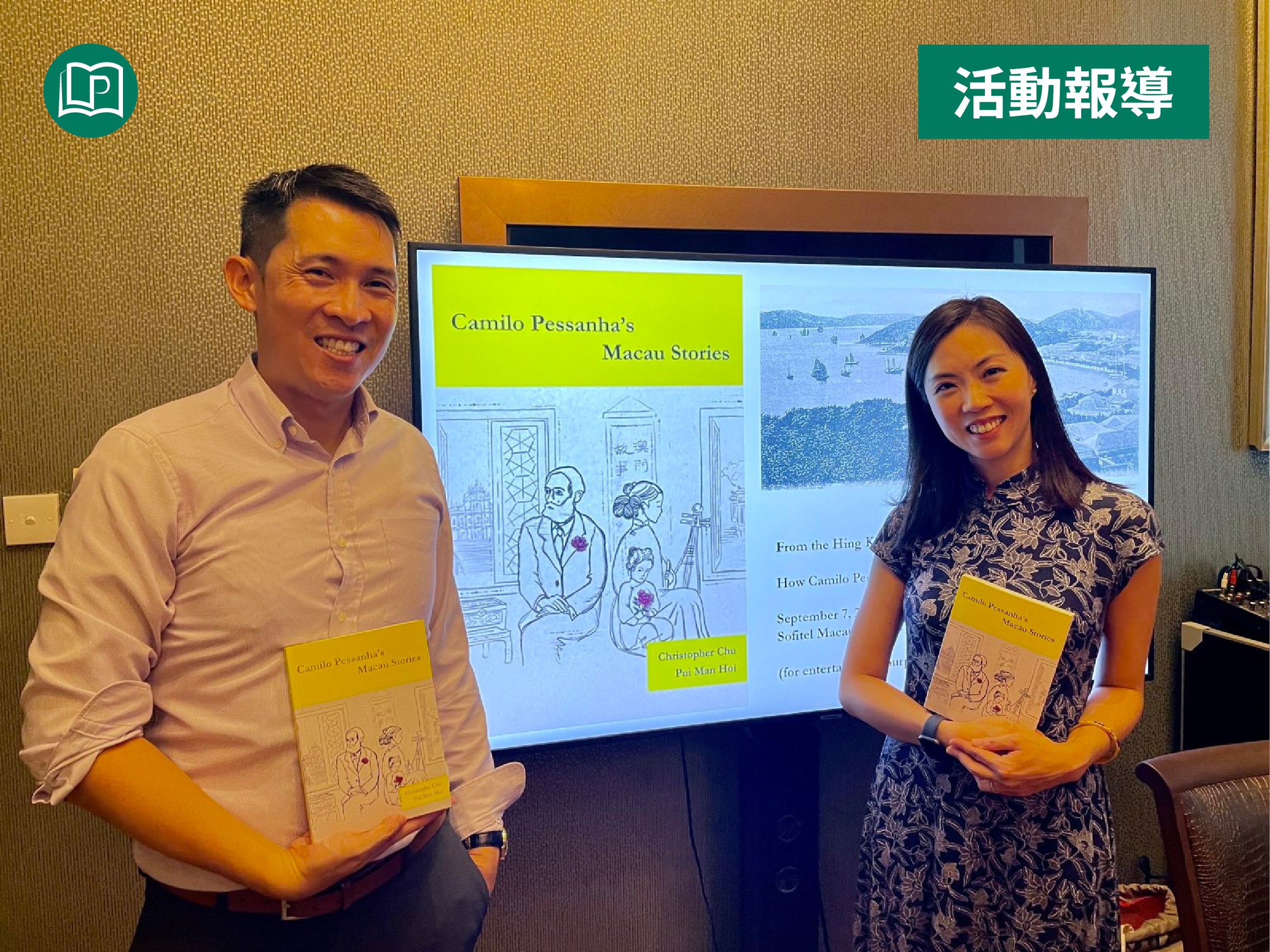Authors Christopher Chu and Maggie Hoi say more should be done to spread awareness of the life and achievements of Pessanha, the leading figure of Portuguese symbolism.
Think of poets and Macao and the first name that comes to mind is that of Luís de Camões, the 16th-century bard often held up as Portugal’s national poet, and whose name lives on such local landmarks as the Camões Garden and Camões Grotto.
Besides a mural at the Portuguese consulate, there is nothing commemorating Macao’s other great poet, however, and with their new book Camilo Pessanha’s Macau Stories, local authors Christopher Chu and Maggie Hoi would presumably like that to change. The volume was released yesterday, on the 156th anniversary of Pessanha’s birth in the Portuguese city of Coimbra.
The poet was a notorious opium addict who worked variously as a lawyer, judge, journalist, and teacher. He settled in Macao in 1894 and is the leading figure of Portuguese symbolist poetry on the strength of his single published work, Clepsidra, which appeared six years before his death in 1926. Pessanha is buried in St. Miguel Arcanjo Cemetery near the St. Lazarus District.
“Camilo Pessanha is a relatively well-known person here in Macao but at the same time he’s not,” Chu says. Yet “his life was just so well documented. There’re photographs and letters and just an endless amount of information about this person who lived here for 30 years.”
Much of the book focuses on the author’s connections – his friendship with Macao-based Portuguese writer Wenceslau José de Souza de Moraes, as well as his relationship with Lei Ngoi Long, the mother of his son. After she died, Pessanha married Lei’s daughter Ying.
Both Chu and Hoi said that it was unfortunate that Pessanha’s name was frequently associated with his scandalous manner of living. “He did a lot of [other] stuff,” Hoi says. “He was also a judge, a teacher, and he changed a lot of local laws.”
Chu points out that he also voted for more Chinese representation in the legislature during an important debate in 1911. His translations of Chinese verse, Oito Elegias Chinesas (Eight Chinese Elegies in Portuguese), were meanwhile collected in A Obra e o Homem: Camilo Pessanha, a commentary by the late Portuguese writer João Gaspar Simões.
Attending yesterday’s book launch, João Manuel Costa Antunes, former director of Macao Government Tourism Office, praised the effort to spread greater awareness of Pessanha. “I think it is important if you can share [Pessanha’s story] with the younger generations,” he said.
Camilo Pessanha’s Macau Stories is published by Macanese Publishing and priced at 188 patacas. It is the second work from the authors, whose Macau’s Historical Witness, appeared in 2022, presenting stories around 22 Macao’s landmarks.
Next, Chu told Macao News, “We are seeing if we can tell Macao’s story through food.”
【The Macao News】Local poet Camilo Pessanha is the subject of a new biographical work
Local poet Camilo Pessanha is the subject of a new biographical work
